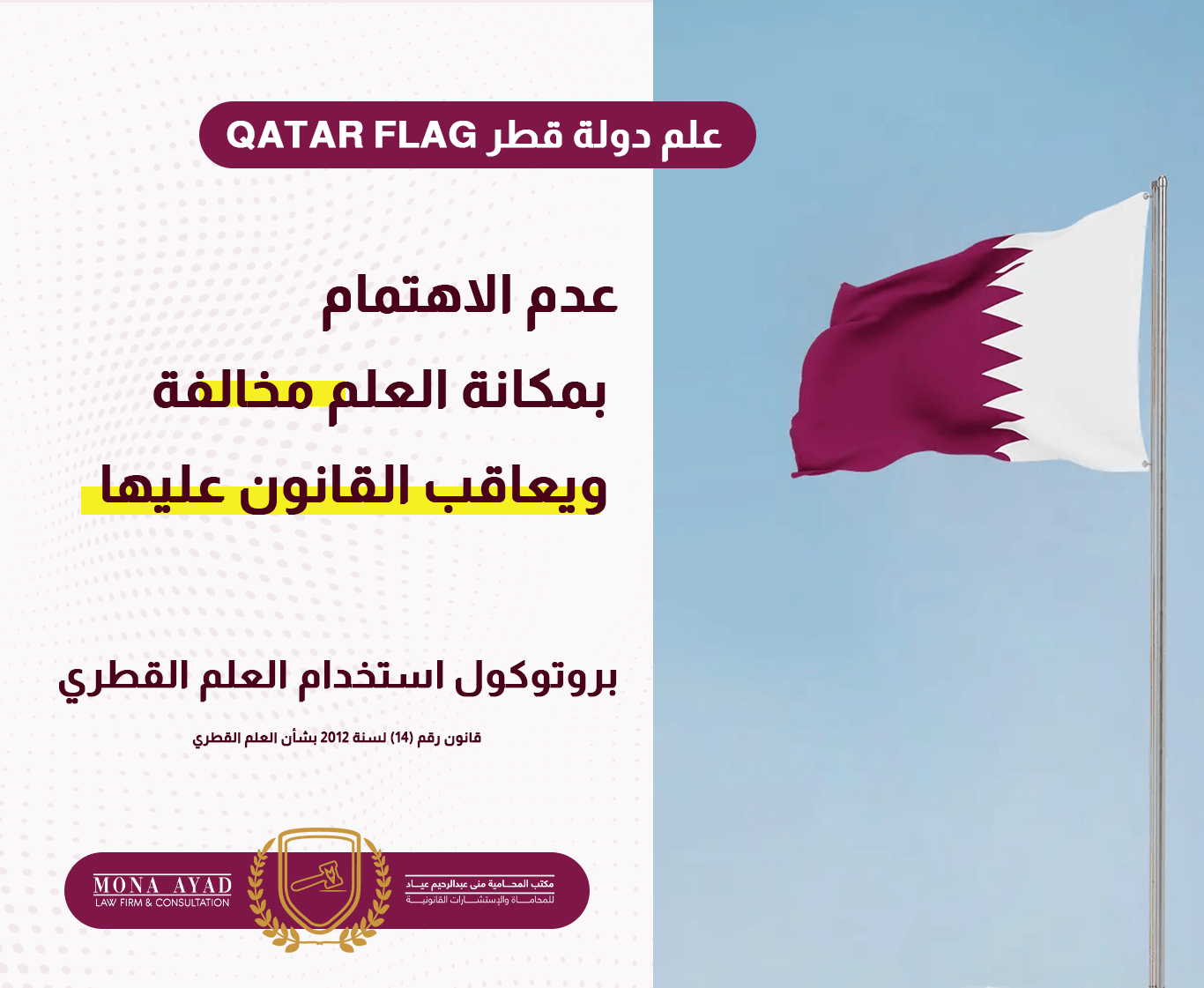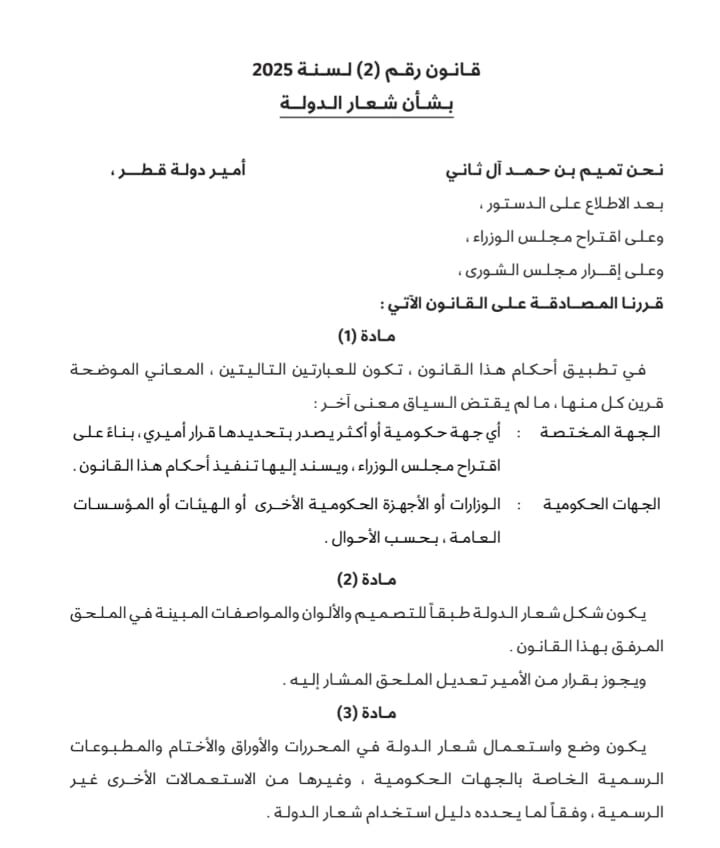Qatar Law Regarding the State Flag and Related Prohibitions

By: Mona Abdulrahim Ayad Law Office for Legal Services and Consultations
The State of Qatar has recently issued a law concerning the handling of the state flag, aiming to enhance respect for this national symbol and regulate its use, while imposing strict prohibitions and penalties for violations. This law is part of the Qatari government’s efforts to strengthen national identity and pride in the flag, within a broader campaign to support national unity and loyalty to the state. In this article, we review the details of this law, the prohibitions it stipulates, the permitted exceptions, and the guidelines for handling the flag, while shedding light on the controversy it has sparked within society.
Objectives of the Law
The law aims to protect the Qatar flag as a national symbol reflecting the state’s history and identity. It seeks to ensure its use in a dignified manner that respects its symbolic value, whether in official events or public occasions. This legislation also reflects the government’s vision of fostering national belonging among citizens and residents alike.
Prohibitions in the Law
The law includes a set of prohibitions aimed at preventing any misuse or disrespect of the Qatar flag, including the following:
- Insulting the Flag: Any behavior or act deemed an insult to the flag, such as tearing it, writing on it, or using it in a way that undermines its dignity, is strictly prohibited.
- Unauthorized Commercial Use: Using the flag in commercial advertisements or products without official permission from the relevant authorities is banned.
- Improper Handling: Displaying the flag incorrectly (e.g., upside down) or using it as a cover or tool in inappropriate contexts is prohibited.
- Altering the Flag: Changing the flag’s colors, design, or adding any symbols or writings to it is forbidden.
Violators of these prohibitions face severe penalties, which may include fines or imprisonment, as determined by the state’s legal system.
Exceptions and Permitted Cases
Despite the law’s strictness, there are exceptions where the flag may be used in specific ways, provided approval is obtained from official authorities. Examples include:
- National Events: The flag may be used in official celebrations, such as National Day, while adhering to specified guidelines.
- Educational Purposes: The flag can be used in schools or educational institutions for teaching purposes, provided its display rules are respected.
- Sporting Events: Raising the flag is permitted during international matches and events representing Qatar, with compliance to regulations.
Guidelines for Handling the Flag
The law outlines several guidelines for handling the flag during official events and public occasions, including:
- Display Method: The flag must be raised vertically, ensuring the white section is on the left side.
- Physical Condition: Using a damaged or faded flag is prohibited, and it must be replaced immediately if signs of wear appear.
- Presentation at Events: The flag should be placed in a prominent, elevated position during official celebrations, avoiding proximity to objects that may diminish its prestige.
Conclusion
The law concerning the Qatar flag represents a significant step toward reinforcing national identity and protecting a symbol that embodies the state’s history and unity. However, compliance with this law requires societal awareness of the flag’s importance and the regulations governing its use. At Mona Abdulrahim Ayad Law Office for Legal Services and Consultations, we are committed to providing legal support and guidance to individuals and institutions to understand and comply with this law, while ensuring their rights are protected within the legal framework.
For further inquiries or legal consultations on this topic, please contact our office for the necessary assistance.





